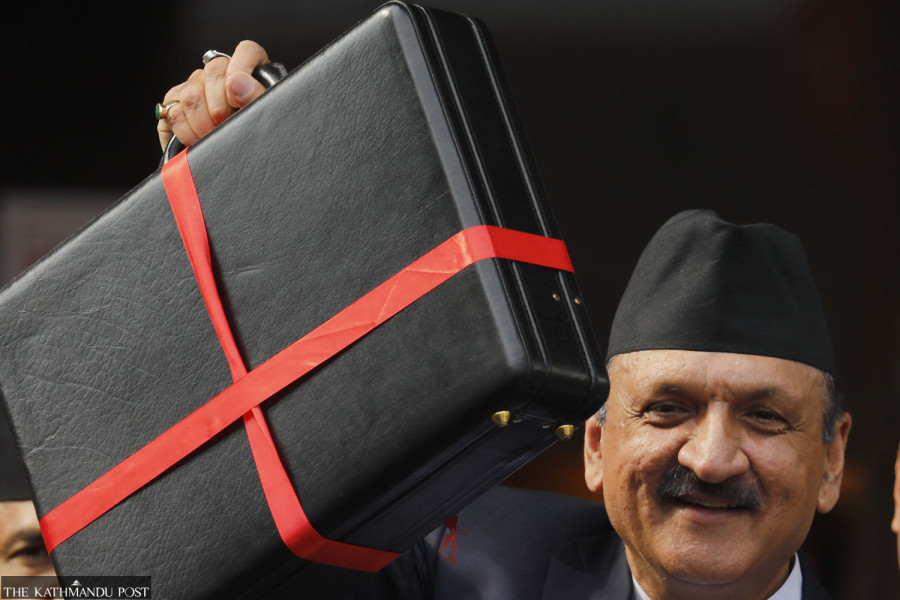Editorial
Lofty dreams in hard times
The finance minister has promised so much without spelling out how he intends to keep those promises.
The most quirky yet hard-hitting comment on the budget for the next fiscal year 2023-24, beginning mid-July, must have come from Kathmandu Mayor Balendra Shah, who chided lawmakers for coming down to the level of municipal ward chairs. Shah was alluding to the Rs50 million that each lawmaker would get as part of the Constituency Development Fund (CDF) to spend on projects of their choice. While the lawmakers’ conspicuous silence on the controversial funds exposes their deep interest in distributing money to their near and dear ones in the name of infrastructure development, it also lays bare Finance Minister Prakash Sharan Mahat's immaturity, even self-serving goals, even as he professes financial prudence.
The resumption of the CDF is also a setback to the spirit of federalism. At a time when infrastructure development has been devolved to the subnational levels, the idea of distributing petty funds to lawmakers to spend arbitrarily when there is a need for greater cooperation between subnational and federal governments is misplaced. In resuming the fund, which had rightly been scrapped for two years, the finance minister exhibited a lack of common sense when public and expert opinion is firmly against it. He also seemed confused when he presented the Rs1.75 trillion budget, even as his allocations reflect the financial crisis the country is undergoing.
While the finance minister’s aim of raising the growth rate to 6 percent and keeping inflation within 6.5 percent sounds lofty, he also does not seem to know where the money is going to come from in the absence of drastic cost-cutting measures, especially considering how the budget had to undergo downward revision in the current fiscal year. For instance, the finance minister has provisioned for foreign loans of Rs50 billion, whereas the government was able to raise only Rs5 billion in the current fiscal. Surely, the country’s creditworthiness has not shot up overnight.
Increasing excise and customs duty on low-end electric vehicles while reducing the same on high-end ones also does not make sense either. Mahat pushed for the construction of Nijgadh International Airport when the rationale of building twin international airports—Bhairahawa and Pokhara—remains unclear even after they came into operation. Apart from the lack of clarity in the investment modality for the said airport, as concerning is the environmental impact of felling millions of trees, disturbing the ecology of the crucial green cover in the area. And how can he justify increasing taxes on agricultural tools even as he promises to work for the farmers’ benefit?
The budget seems to have failed to assure people that the government would help them get by on a day-to-day basis without compromising on the essentials of food, shelter and livelihood—let alone guarantee the more lofty welfare and inequality benefits. This is evident in the double-digit fall in the already fragile share market the day after the finance minister presented the budget. If the objective of the budget was to boost the morale of the people whose pockets are getting shallower, it has failed to do so. Importantly, in a political-economic climate where the government cannot spend its budget, the size of the yearly financial plan, big or small, could be just a small part of a much bigger problem with the country’s long unaddressed fiscal mismanagement.




 18.12°C Kathmandu
18.12°C Kathmandu














